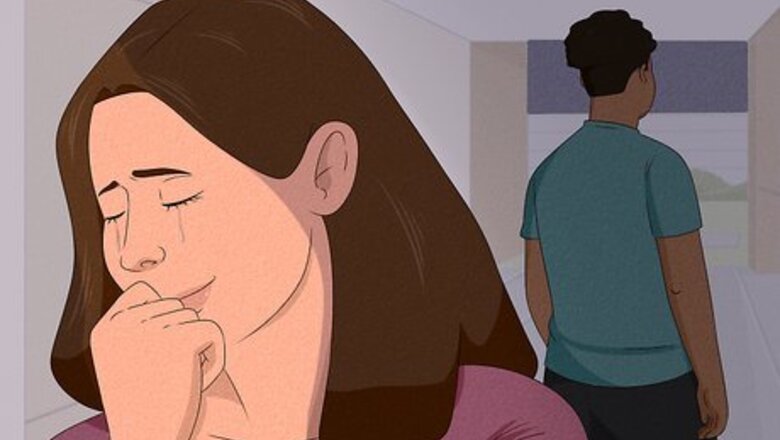
views
- The part of your brain that processes emotional pain overlaps with the part that senses physical pain. This is why you may feel physically hurt when you're upset.
- It’s completely natural to experience some pain in a healthy relationship if you and your partner are honest about your wants and needs.
- Most people experience pain early in a relationship because it’s scary to be vulnerable and open up emotionally to someone.
What does it mean when people say "love is pain?"
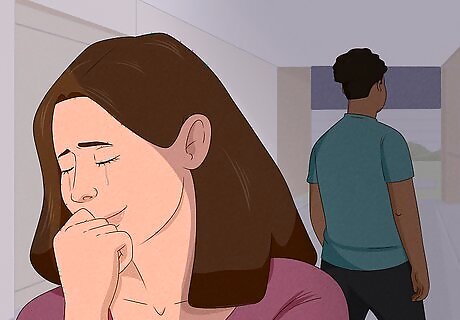
Some people say “love is pain” to mean that breakups physically hurt. If you have ever experienced a breakup where you felt actual pain, you are not alone. A lot of people report headaches, stomach pain, muscle weakness, joint pain, and even fevers in the aftermath of the end of a relationship. In fact, the stronger the love was, the more intense the pain can be. This isn’t some kind of “it’s all in your head” phenomenon, either. Studies have shown that painkillers alleviate the physical symptoms that show up after a heartbreak.

On a less literal level, “love is pain” can mean relationships are tough. A real, long-term committed relationship isn’t always going to be easy, so some people say love is painful to mean “it can be painful work to maintain a loving relationship.” This kind of pain is temporary and deeply rewarding if you’re willing to commit to the person you love. This is not the kind of pain you want to shy away from if you’re in love. Perseverance and effort aren’t fun, but the rewards are so deeply potent that it’s worth it!
Can heartbreak physically hurt?
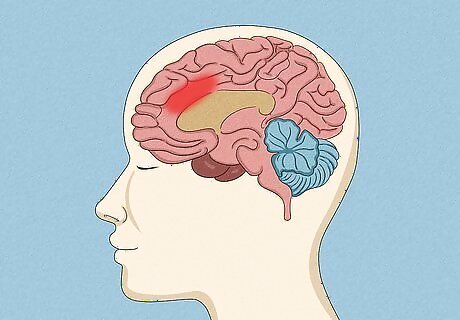
Yes, heartbreak triggers the same part of the brain that causes pain. Studies have looked at what goes on in the human brain when it experiences heartbreak, and the results are surprising. The emotional pain of a lost love actually overlaps with the same part of the brain responsible for physical pain and distress (the insular cortex and anterior cingulate). This means that if you experience a breakup, your brain can interpret the signals like you’ve suffered a physical injury.

Breaking up is chemically comparable to withdrawing from an addiction. The bonding of an intense relationship releases a chemical in your brain called oxytocin. This feel-good hormone floods the brain with all kinds of positive feelings and sensations. However, if that oxytocin flood suddenly dries up, the sensation can resemble withdrawal of a drug addiction. As a result, the loss of a romantic partner whom you loved dearly is chemically comparable to an alcoholic who can’t get a drink. In both cases, the pain can be severe and intense.
Should love hurt in a relationship?

It’s totally okay for love to be a little scary or painful. A relationship requires a lot of vulnerability, risk, and chance, and those elements can be even more intense if you really love someone with all your heart. So, if the pain you’re experiencing stems from the anxiety of a relationship going wrong or the work required to make the relationship function, it’s normal and completely okay. There’s never been a successful relationship that didn’t involve some kind of growing pains as both partners worked out the kinks and found a way to compromise. If a relationship didn’t involve any friction or difficulty, it’d be a sign that each partner wasn’t being honest about their wants and needs.
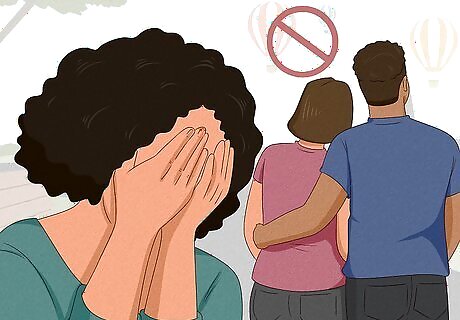
Your partner shouldn’t intentionally make you feel pain. It’s not healthy if your partner is going out of their way to inflict pain and suffering on you. If you feel disrespected, undervalued, or mistreated, you might be in a toxic relationship. This kind of pain is not only abnormal, but it’s a signal it’s time to move on. Just to be absolutely clear, you should not tolerate any physical or emotional abuse. Do not hesitate to reach out to friends or family if you need help getting out of a difficult situation.
Reasons Love May Emotionally Hurt

The fear of the unknown can be overwhelming. So, you meet someone, fall for them, and they fall for you. All of that is incredible and awesome. But what happens a year from now—will they still like you? What about 5 or 10 years? All of those questions can rattle around in your head and cause all kinds of stress. This is normal, and it will go away over time as you and your partner become more secure. Try to enjoy the moment and have fun. Nobody can tell the future, and worrying about what could happen shouldn’t ruin what’s happening now. When you start imagining how things might fall apart, remember that the odds things go perfectly are just as likely!

Relationships require vulnerability that can lead to pain. Committing to a partner requires you to open up about your deepest fears, worries, and insecurities. It’s scary to give all of that information over to another person, and knowing that they really see you for who you are can be a lot. This is completely valid, and it’s a very natural kind of emotional pain. These worries will dissipate over time as you realize that you can trust your partner. In fact, this kind of radical vulnerability will start to feel powerful and fulfilling—not painful. Assume that your partner has good intentions if you're hesitant to open up. If they let you down, chances are it was by mistake and the two of you can work through it.

A fading honeymoon phase can be scary. When two people first hook up and get together, there’s a period known as the honeymoon phase where each person is so enthralled and in love that they overlook each other’s flaws, issues, or negative traits. As that honeymoon phase ends, it can feel like the relationship is falling apart or something isn’t right. This will pass as you two learn to live with the imperfections you both have. It’s good that the honeymoon phase ends; this is when you two trade in your initial affections for something deeper, more fulfilling, and meaningful! Don’t start freaking out if things suddenly feel a little more boring than they used to be. A little cooling off period is a sign you two are stable and healthy. Try doing something neither of you has done before together to recreate that exciting honeymoon feeling (and grow closer in the process).
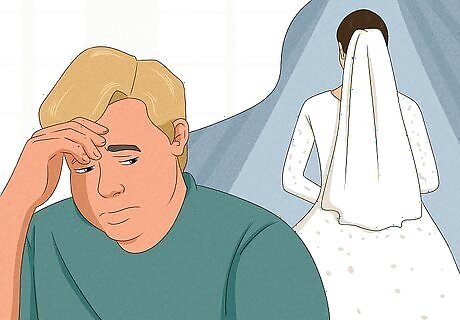
You may doubt the relationship’s strength. If it feels like this relationship isn’t going to last forever, you may be struggling with some inner turmoil. Those doubts and fears can make it feel like your world is falling apart. This is common—even in healthy and committed long-term relationships. Worrying about a relationship is a normal way of checking yourself and taking an inventory of where you and your partner are at. Not every relationship should last forever. If this one ends, take solace in the knowledge that you’re one step closer to finding your soulmate. Talk to your partner about this. If you’re worried, they can reassure you that you’re spooked about nothing. If something is actually wrong, talking is the only way to resolve things.
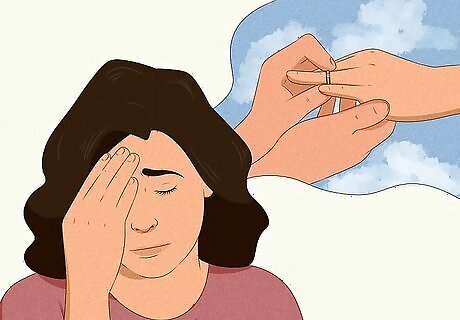
Commitment can be frightening if you aren’t used to it. If this is your first long-term relationship or you’re used to doing more short-term stuff, committing to a long-term partner can feel like you’re trapped. This kind of emotional pain is normal for a lot of people, and it can get a lot easier if you allow yourself to let go of it. Do your best to work through your fear of commitment. If you can learn to let go and throw yourself into the deep end of the relationship without any hesitation, you’d be surprised by the joy you’ll find on the other side!













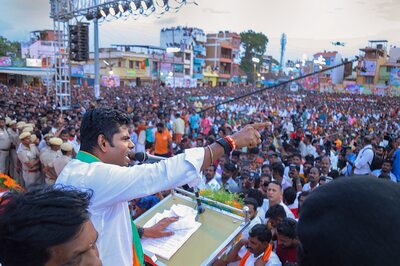
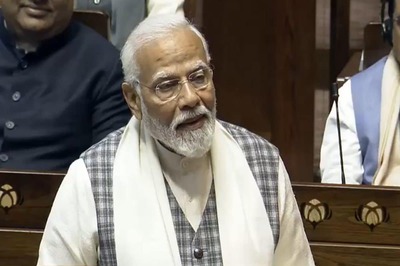




Comments
0 comment